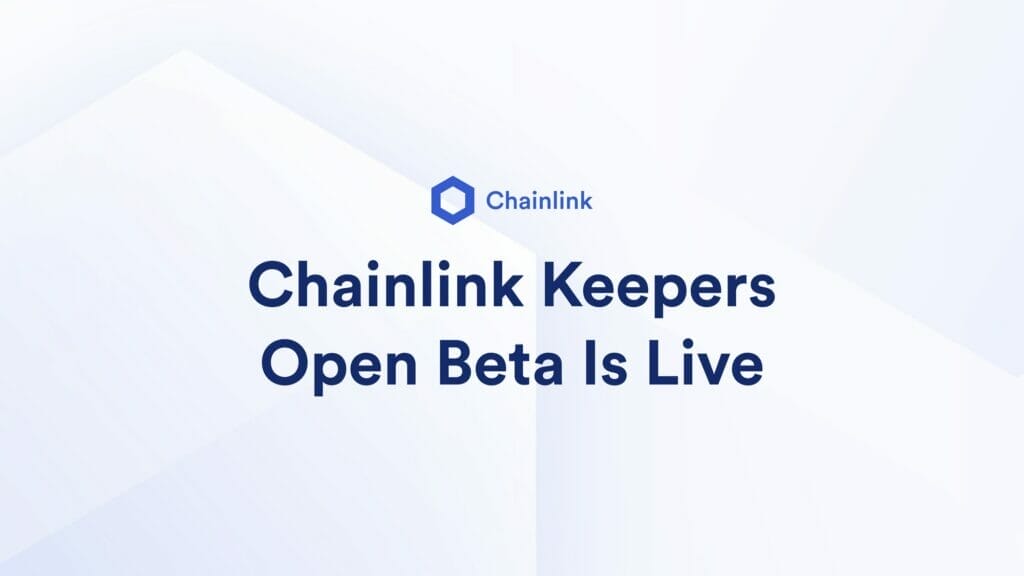Smart contracts are pieces of code that run deterministically on a blockchain. What makes a smart contract “smart” is its connection to the real world through external resources that allow it to execute important on-chain functions. As such, hybrid smart contracts are composed of two vital parts: an agreement codified on-chain and equally reliable, tamper-proof data proving off-chain events.
Chainlink’s decentralized oracle networks (DONs) enable increased confidentiality, randomness and scalability for hybrid smart contracts through the provision of highly reliable, tamper-proof data that powers a growing array of complex on-chain functions.
Historically, developers have had to manually perform a variety of these time- and event-based tasks for smart contracts, such as executing limit orders on decentralized exchanges, liquidating undercollateralized loans and releasing locked assets after periods of inactivity. However, manually triggering and managing smart contracts is costly and time-consuming.
Chainlink Keepers, now live in Open Beta, is a new decentralized service that allows developers to reliably automate regular contract triggers – eliminating the time, resources and risks involved with performing keeper operations manually or through centralized systems. With Chainlink Keepers, developers can define the exact set of conditions (based on times, events and computations) that trigger the execution of critical smart contract functions.

Chainlink Keepers utilizes a decentralized network of the same security-reviewed and historically proven node operators powering Chainlink Data Feeds, currently securing billions in smart contract value. By managing smart contract functions that are often time-sensitive and responsible for user funds, Keepers strengthens uptime guarantees and achieves end-to-end decentralized automation without the need for an additional layer of trust.
Stephen Fluin, Head of Developer Relations at Chainlink Labs, said the use cases for Chainlink Keepers include yield harvesting, rebasing, triggering asset distribution, topping up token balances and more. As a significant step toward off-chain computation, Keepers can simulate event and timer checks off-chain and trigger on-chain transactions only when needed, based on the data calculated off-chain and then verified on-chain during execution.
“A great example of this would be that you could write a contract that checks all of the balances from a list of addresses and only performs on-chain transactions for those that pass some sort of threshold,” Fluin said. “Traditionally, this would be a hugely expensive transaction to do on-chain. With a ‘simulate off-chain’ then ‘verify on-chain’ strategy, smart contract writers can push costly computation to the Chainlink Keepers Network and perform validations on a subset during execution, greatly reducing gas costs.”
To try the Chainlink Keepers Open Beta, visit https://keeper.chain.link and send feedback to [email protected]. To learn more about Chainlink Keepers’ technology, visit https://docs.chain.link/docs/chainlink-keepers/introduction/.
Elizabeth Licorish is a writer and author whose work has appeared in HuffPost, PhillyVoice and Bustle. In 2008, she wrote and co-authored Innovation for Underdogs. In 2010, she wrote and edited Charles Manson Now. She received her MFA in creative nonfiction from Rutgers University and has ghostwritten hundreds of executive thought leadership pieces for some of the world’s leading experts across diverse industries. She has been writing and editing for influential blockchain projects since 2017, when she fell in love with decentralized finance’s potential to empower individuals in an economically just world. As the editor-in-chief of Chainlink Today, she’s passionate about telling the human stories behind some of the most promising technology in the fastest-growing blockchain ecosystem.


